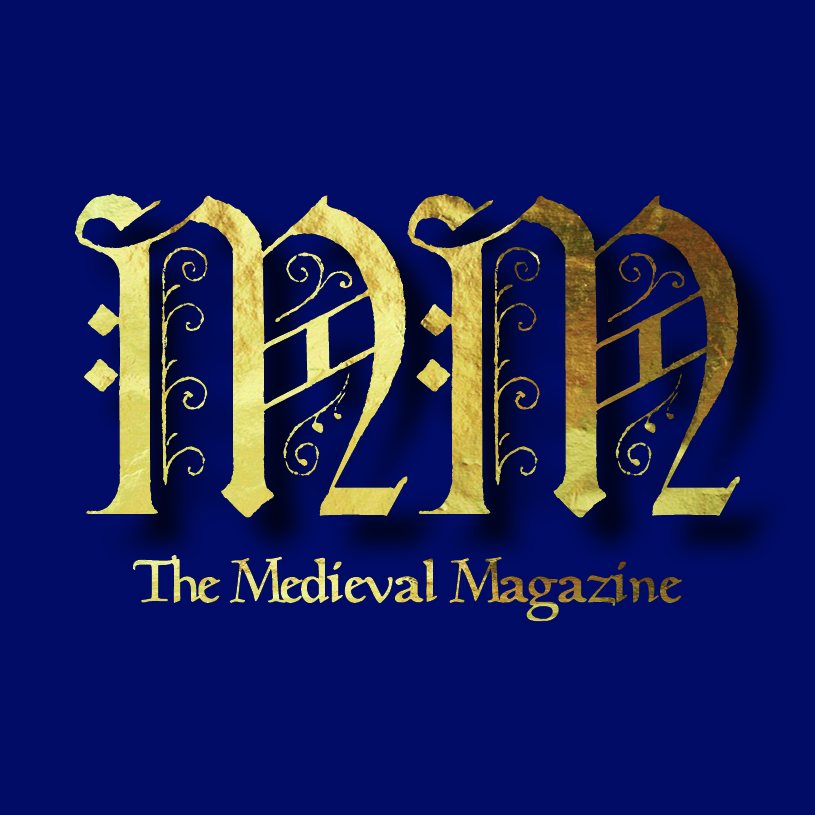13th-Century Travel Blogging: How Two Friars Talk about Talking to the Mongols by Devon Field
Pope Innocent IV sends Dominicans and Franciscans out to the Tartars, and Mongols. From: Vincent of Beauvais, Le Miroir Historial (Vol. IV), Paris, Master of the Cité des Dames (illuminator); c. 1400-1410. ©KoninklijkeBibliotheek
Any multi-year journey through Central Asia would be considered by most to be quite the adventure, to be planned for, cherished, and documented, filling phones with images to show friends and family or post immediately on social media: look at this strange landscape, this new friend, this strange food I’m trying. In some ways, the mid-13th-century wasn’t so different.
The trip was, of course, rather more of an adventure then. As a European traveller, you went into the unknown, a place beyond the Alexandrian walls where Prester John was said to rule, and a place populated by the Mongols who had recently terrorized Central Europe. But there were those who went, and they included the Friars William of Rubruck (1220–1293) and Giovanni da Pian del Carpine (1185–1252), who, as people now blog their way from one death-defying bus-ride to another, documented their hosts, their diet, and the horrors and wonders that they encountered.
The Trouble with People
It must be admitted that William, though eminently capable, was not what we’d now call a “good traveller,” open to the diversity of people he moved among. The Mongol women were picked out as being “astonishingly fat,” and with noses which he neither understood, nor tired of mentioning. “The less nose one has, the more beautiful she is considered,” he noted at one point, and then later, of the wife of a local commander, that he was, “really under the impression that she had amputated the bridge of it.” To be fair, Giovanni’s opinion, though less nose-centric, was little more complimentary.
Giovanni did what he could to describe the Mongols’ physical appearance right up to their hats, which he found totally indescribable. He did find things to admire in the Mongols’ character, or if not to admire, then to account for their success, including obedience, lack of crime, and toughness in the face of suffering. However, when he turned to their negative attributes, he really got rolling. They were arrogant, treacherous, and greedy, prone to lying too easily, and drinking too much; they were unbearably filthy, and the list went on, and on, until he concluded that, “In short, because their evil habits are so numerous, they can hardly be set down.”
Mongol archers featured in the Compendium of Chronicles of Rashiduldin Hamadani (1305). From: “The History of the World” by Rashid al-Din. Photograph by AKG-Images, published in “The Mongols and the West”, Peter Jackson, 2005.
©WikimediaCommons
They Take, and Take, and Take
Gift-giving, some would say extortion, was an integral part of dealing with the Mongols, and though the friars made efforts to prepare, they never quite got the hang of it. Giovanni was warned by a Russian prince that he wouldn’t get far without something to offer, and he obtained a stock of badger and beaver pelts for the purpose, while William, receiving the same advice in Constantinople, brought fruit, wine, and rich biscuits, but none of it would prove sufficient, and both men wrote often of their hosts’ greed.
In his very first encounter with the Mongols, long before reaching royalty, or even a regional commander, William was already turning over some of the precious biscuits and wine, and when the first flagon was drunk, a second was demanded. After all, they told him, in a pretty delightful turn of phrase, “a man does not enter a house on one foot.” The wine did not last long, and the biscuits were soon needed to stave off starvation. Meanwhile, Giovanni also allowed himself to be milked too early and for too many gifts, and found himself in the the unpleasant position of offering less and less satisfactory answers when asked, “What do you wish to bow with?” the formula by which underlings would ask what he was going to present to their lord. Though the lords in question would generally react with good grace, the underlings, on whom it likely did not reflect well, were less forgiving of shortcomings in the present department.
Eating Out in Medieval Asia
Of course, no good travel writer could go abroad without mentioning the food, and in this William clearly came out on top. While Giovanni spoke of shallow bowls of millet in the bad times, and cooked meat with salt in the good, William gave his readers, “millet with butter or dough cooked in water with butter or sour milk, and unleavened bread baked in cattle or horse dung.” He talked of the monk in Mongke Khan’s camp who claimed to live on a weekly meal of, “dough cooked with vinegar,” but really ate, “almonds, grapes, dried plums and ... other fruits” from the box below his altar when nobody was around. He also described the khan’s elaborate silver tree for the holding and dispensing of wine, fermented mare’s milk, a honey beverage, and rice ale, the whole contraption the work of a Parisian craftsman. The competition was sparse, but William was the foodie’s friar in the east.
The Monsters and Wonders Beyond the Wall
Through one cold, dark pass, his party and their guides rode under the threat of demons that were said to frequently swoop down to snatch out the intestines of unwary travellers, or just their horses. Either out of genuine concern for his intestines, or satisfaction at having impressed the Mongols with the power of his prayers, when they safely reached the other side, William recorded the incident.
For Giovanni, on the other hand, this was an area where he really stretched his legs. He was going into unknown territory, and where he lacked first-hand experience he extended his reach with the outlandish tales of others. He wrote of a people whose males took the form of dogs and wore sheets of frozen river-water as armour, and of another who lived beneath the mountains and feared the sound of the sun. There were those whose mouths would not permit the swallowing of food and lived by inhaling the steam of meat, and others who went about in a wasteland with only one hand, in the centre of their chest, and one foot too. They hopped one-footed faster than a horse could run, and when they tired of that, they cartwheeled hand and foot over the ground. The map was not yet entirely coloured in, and the stories Giovanni heard helped scribble in around the edges.
Ms Fr 2810 f.76v, Wolf-headed people of the Andaman Islands in the Indian Ocean, from ‘Le Livre des Merveilles’, c.1410-12 (tempera on vellum). By The Boucicaut Master and workshop (1390-1430), Paris, France. ©BibliothequeNationale
Playing it Cool in Karakorum
If William had the edge on Giovanni at the dining table, it was the latter who let us feel the hardships of journeying on the other side of Alexander’s wall. He openly wrote of the fear he felt at departing of, “death or permanent captivity by the Mongols or others,” of, “hunger, thirst, cold, heat, injury and troubles beyond [his] strength.” Later, when his party was divided, with some held in the camp of Batu while others were sent on towards Karakorum, he wrote that he and his fellows left in tears, half starved on a diet of salted millet and snow, so sick they could barely ride, and half-certain they went to their deaths. As for William, he played it a little more cool. He addressed his writing not to a general readership, but to his patron, King Louis IX of France (1214–1270). Maybe that was why he never complained of cold, starvation, or fear of death himself, but always put those words in the mouth of his bumbling colleague, Bartholomew, or maybe Bartholomew really was the weaker of the two.
The two returned home with intelligence on Mongol military organization and how best to resist it, and advice to the mendicant orders and to Louis IX too, but, as we’ve seen, their writing wasn’t all such grand stuff, for the ears of popes and kings alone.
THIS ARTICLE WAS ORIGINALLY FEATURED IN ISSUE 115, MEDIEVAL TRAVEL.
IF YOU LIKE THIS AND WANT MORE, SUBSCRIBE BELOW!
About the Author
Devon Field is the writer and host of Human Circus: Journeys in the Medieval World, a narrative history podcast about medieval travellers. He received his M.A. in Humanities from Simon Fraser University in Vancouver, B.C., where he now lives and teaches writing to small children.




